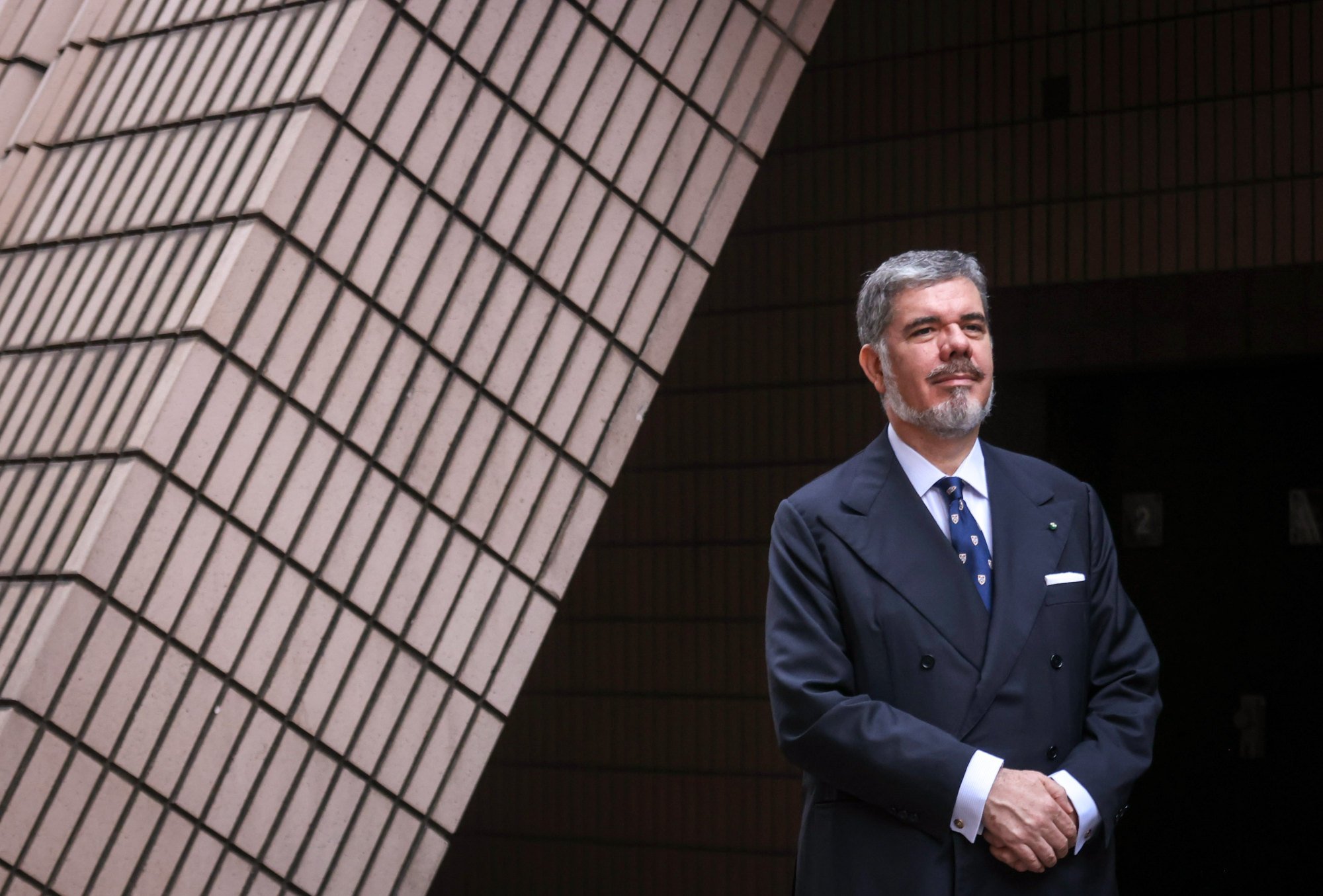
No longer in Belt and Road Initiative, Italy focuses on strategic ties with China, leaders invited to Beijing this year
- Visits by Italian president and prime minister being planned for this year are a sign of ‘positive relations’, Ambassador Massimo Ambrosetti says
- China’s Commerce Minister and delegation to attend Joint Economic Committee meeting in Verona next month
Italy’s top diplomat in Beijing told the Post that Chinese authorities had invited President Sergio Mattarella and Prime Minister Giorgia Meloni to visit this year, which marks 20 years of the bilateral strategic partnership.
“This is a confirmation of the positive relations between Italy and China, otherwise these visits would not be on the agenda of our leaders,” he said. “There is political willingness to keep the relations between China and Italy at a very strategic level.”
He said dates for the visits had still to be arranged, but they were “being planned and hopefully they will both take place in 2024”.
He was speaking in Hong Kong on March 15 before attending a performance by Milan’s famed Teatro alla Scala Ballet Company at the Cultural Centre in Tsim Sha Tsui.
Questions were raised about the relationship between the two countries after Italy announced last December that it would pull out of the Belt and Road Initiative, Beijing’s plan to link economies in Asia, Europe and Africa into a China-centred trade network.
Italy maintained that it was keen to pursue its bilateral strategic partnership which started in 2004, and Ambrosetti said the two countries had been negotiating a three-year action plan to be signed when leaders from the two countries met.

A first step in relaunching the partnership will be taken in the northern Italian city of Verona on April 11 and 12 with a meeting of the Italy-China Joint Economic Committee, to be attended by Chinese Commerce Minister Wang Wentao and an official delegation.
Representatives of both countries’ business sector and major corporations are also expected to be there at the same time for a business forum.
Ambrosetti said the bilateral partnership covered relations in the areas of vehicle manufacture, agriculture, pharmaceuticals, culture, people-to-people ties, education, sports and more.
It has been reported that the Italian government has invited Chinese carmakers BYD and Chery to build plants in Italy.
Ambrosetti said Hong Kong had an important role in the bilateral partnership and that the city was “a very significant gateway to China” with unique expertise and know-how.
“It’s the knowledge of the West and the East, with Chinese roots, but the culture was shaped also by Western presence,” he said.
The art of diplomacy? Hong Kong’s cultural role amid Europe’s tense Beijing ties
Hong Kong had also entered another phase of development by being part of the Greater Bay Area, which Ambrosetti said was “one of the most dynamic economic areas in the world”.
The bay area is Beijing’s plan to link Hong Kong, Macau and nine cities in Guangdong province into an economic powerhouse by 2035.
The ambassador’s visit coincided with a variety of Italian cultural activities this month, including Italian Design Day on March 14 when a delegation of designers and architects visited the city.
Italian art galleries will also take part in “Art March” events such as Art Basel, which will start this week.
Ambrosetti said cultural events could act as a lubricant for international relations as they helped different countries understand each other’s identity and background.
“In international politics, if you don’t understand the cultural background and the mindset of your interlocutors, it’s much more difficult to achieve good results.” he added.
China’s Ministry of Foreign Affairs has been contacted for comment.

